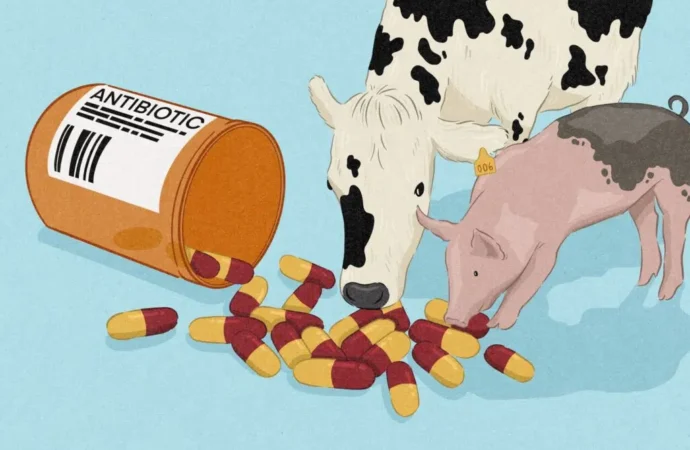Key Development
India has taken a decisive step to improve food safety and combat the rising threat of antimicrobial resistance (AMR). The government has amended the Export (Quality Control and Inspection) Act, 1963, to ban the use of specific antimicrobial drugs in the production and processing of milk, milk products, eggs, and honey.
New Rules Ban Growth-Promoting Drugs in Livestock
Under Section 6 of the Act, the Ministry of Commerce and Industry issued the amendment after consulting the Export Inspection Council. The updated order adds two crucial clauses to the earlier notification from November 9, 2020:
- Prohibits the use of antimicrobials to boost growth or yield in milch animals
- Bans specific antibiotics, antivirals, and antiprotozoals at any stage of animal treatment or food processing
India Targets High-Priority Medicines
The government has banned the use of several critical drugs that the World Health Organisation (WHO) classifies as essential for human health. These include:
- Antibiotics: Carbapenems, glycopeptides, oxazolidinones
- Antivirals: Favipiravir, molnupiravir
- Antiprotozoals: Nitazoxanide
Authorities aim to prevent these substances from entering the food chain, where they can leave residues linked to allergic reactions, cancer risk, and the acceleration of AMR.
AMR Concerns Drive Policy Change
The move comes amid growing global concern about drug residues in animal-derived foods. A study in Veterinary World (published via the NIH) confirms that frequent use of antimicrobials in livestock significantly contributes to resistance. Overuse in food-producing animals not only undermines public health but also makes antibiotics less effective in treating human infections. India, with over 1.3 billion livestock, including poultry, currently contributes about 3% to global antibiotic consumption. According to FAOSTAT (2020), that number could jump by 82% by 2030 if unchecked. By tightening its export regulations and aligning with international standards, India aims to ensure safer food, protect public health, and curb a global health crisis.
Source: CNBCTV18
 Food Manifest
Food Manifest 


















